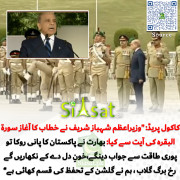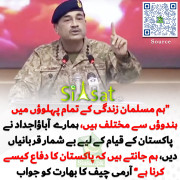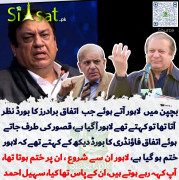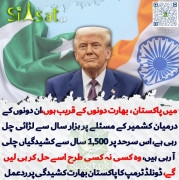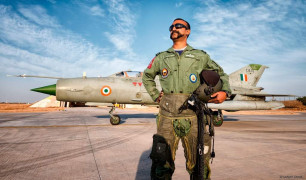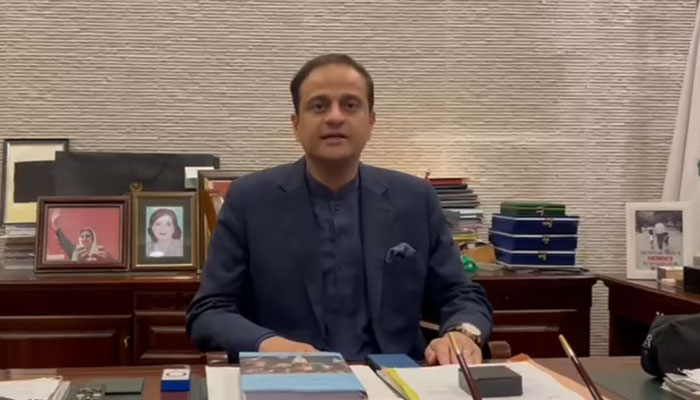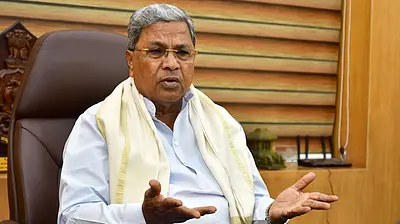Machar
Chief Minister (5k+ posts)
An analyst says the main purpose of the US war in Afghanistan was to export it across the border to break up Pakistan, Press TV reports.
The comments came after former Pakistani President Pervez Musharraf admitted that his government had agreed “a few” times to the United States launching drone strikes inside the South Asian country. The unpopular drone strikes, according to the nonpartisan public policy group New American Foundation, have an estimated death toll of at least 1,990 people in Pakistan, including hundreds of civilians.
Press TV has conducted an interview with Webster Tarpley, author and historian from Washington to further discuss the issue. Tarpley is joined by Jihad Mouracadeh, political commentator from Beirut. The following is a rough transcription of the interview.
Press TV: How significant is it that Musharraf has admitted that he had given the US the OK to carry out the attacks in the first place in Pakistan.
Tarpley: Well I guess this has become a big political issue inside Pakistan for understandable reasons. I regard this entire policy as appalling and indefensible; it has gone on much too long. The Afghan war is a war that should have never occurred and it’s now gone on for 12 or 13 years. It’s high time that it simply ended and there’s no reason to wait for 2014. It would be important to stop these useless and senseless killings as soon as possible.
What we are dealing with of course is the ultimate bankruptcy of a foreign policy.
The calling card of the United States around the world is now the predator drone that kills people without warning from the sky and these are civilians, women, children, innocent bystanders and so forth.
We know that [US President Barack] Obama every Tuesday conducts a terror-Tuesday session in the White House, where he goes through what used to be called proscription. He has an alleged list of targets that people that the US intelligence committee tells him have to be killed and he decides about killing them.
Part of this is inside Pakistan and it is an issue because people who are in the areas that are hit by the drones feel that the central government in Pakistan has betrayed them by allowing these things to go on, which of course is what they have done. So, part of the strategy has nothing to do with the alleged killing of terrorists, but it has to do with trying to breakup Pakistan, which was the main purpose of the US presence in Afghanistan from the very beginning and of the surge in 2009 to try to export that Afghan civil war into Pakistan and to break up the country.
Press TV: Can you hear me Mr. Tarpley?
Tarpley: Vaguely. I’m having trouble with the audio.
Press TV: Basically our guest outside of Beirut has said that this is the cost that this is the price that has to be paid; your take sir.
Tarpley: I believe that we’ve actually had this debate before about conspiracy theories. I don’t look for conspiracies, I simply am an empirical observer and I just try to observe what’s happening. The thesis that the United States is in Afghanistan in order to deprive al-Qaeda of a base or staging area is perfectly absurd. The United States has supported the creation of what amounts to an al-Qaeda staging area which is now extended to all of Libya.
The United States with Secretary [of State John] Kerry of skull and bones and the lead is doing everything possible to deliver the nation of Syria into the hands of various versions of al-Qaeda. So that doesn’t hold up.
In particular whatever the Afghan war was at the beginning in 2001 with the West Point Speech by Obama in December 2009, it fundamentally changed its character and it became even more markedly an attempt to take that long running Afghan civil war and push that into Pakistan.
Again [the US is] trying to exacerbate the divisions among the Pashtuns, Baluchis, Punjabis, Shins and the other groups like the Waziristan and tribal areas with the goal of breaking up Pakistan. If you don’t see that that is the constant of foreign US policy, I don’t know what to tell you because Sudan is divided into two parts and Iraq as the defector has been divided into three parts, Serbia has been carved and other countries are in the process of being broken. Libya may end up broken at the end of this and Syria may end up broken. So, the ultimate US policy is the destruction of the nations' state.
Mouracadeh So, may I ask you sir what is the constant of al-Qaeda sir? What is the constant of the regime in Syria? What is the constant of the former leader [Libyan dictator Muammar] Gaddafi? Can you just tell me, what is the constant of [former Iraqi dictator] Saddam Hussein? Just go on tell me, why do you talk about one constant and don’t talk about the other?
Press TV: Did you understand the question?
Tarpley: I don’t know if I’ve understood the question.
Press TV: He [Mr. Mouracadeh] wants to know what’s the consequences. He’s asking the consequences.
Mouracadeh I’m afraid not, no, I did not. No, I am just saying that the gentleman in Washington just said that the United States has certain constants that meant to destroy the whole area. I’m saying what is the constant of the people who are fighting the United States? In particular, al-Qaeda, what is the constant of al-Qaeda? Can he explain this to us?
Tarpley: The origin of al-Qaeda as I think is widely known is that it is the Arab legion created by the United States.
Mouracadeh Not the origin of al-Qaeda. What are they doing right now?
Tarpley: It varies. But it’s the Arab legion created by the United States in Saudi Arabia during the Soviet presence in Afghanistan, who were designed to fight the Soviets.
Mouracadeh In 1979; it is 30 years later. Yeah, can you please tell me what is the constant of al-Qaeda right now?
Tarpley: Right, well, what we find today is the United States using al-Qaeda as essentially this kind of infantry and that is what we see in Libya and that is what we see in Syria, so that is what I think is the current form that this takes.
Mouracadeh For what purpose sir?
Tarpley: Again, the goal of the US policy is the destruction of the modern state; the mini state, micro state, failed state, rump state, war lords; but, to destroy political units that are big enough to defend themselves, fight back and say no.
Press TV: Mr. Tarpley your take on that, it seems that killing is relative I guess what our guest is saying. Tell me what your perspective is on what our viewer has said. That he said that it would just drive me crazy to imagine my woman and children just being killed by these drones. And basically we don’t see this outrage that perhaps we should be seeing internationally when Afghans lose their lives and when Pakistanis are losing their lives; your take sir.
Tarpley: Well certainly in Pakistan this has become a cause of tremendous public outrage and I think every bit of it is fully justified. We have to look at the harvest of hate that is being sown against the United States in the world and I shudder to think what the implications of that are for the future. My only recommendation can be to stop this right now. The great principle of international relations is reciprocity; whatever you do to the other guy the other guy will eventually find a way to do to you. Let us not go down this road once again.
The presence of the US in Afghanistan after we’ve looked at the original 2001 reasons and the West Point 2009 reasons, right now it comes down to the political inertia of the Obama regime. In other words Obama’s weakness as a leader, the weakness of his constituency, his inability to impose his will on the Pentagon.
Can anybody see a reason why these killings should go on? From 2013 into 2014, why should this presence be extended, more people bereaved, more people killed and maimed - there is no reason for it.
It’s just that Obama because of his, certainly his lack of statesmanship, is unable to tell the Pentagon ‘Well it’s going to end now’ rather than 12 or 18 months from now because certainly there were people in the Pentagon and the CIA; [former CIA director] General [David] Petraeus perhaps even more than any other, who wanted this to go on even longer.
They wanted more troops and more time and the futility of this I think is one of the great leading facts of the world today. This has to end, there is no purpose, killing is futile under these circumstances and it should be terminated at once.
Press TV: Mr. Tarpley it seems that a new version of the old west basically just taking them out as [former US President] George W. Bush said smoke them out of their caves. Your take on this, if everyone starts getting this type of perspective, what type of world are we looking at. Are we looking at one set of laws that the United States and its allies can provide and another set of laws for the others because there are many countries that would say that a lot of what the United States is doing in their respective countries are actually terrorists in nature themselves.
Tarpley: Right now it would appear that the drone violence and drone killings are a one-way street. The United States inflicts this on others and we’ve got a new basis, there’s a new killer drone base in Niger, there’s a new base in Djibouti in the horn of Africa. Afghanistan, Pakistan, Somali and Yemen all of these countries are all under attack.
Mouracadeh What about Mali?
Tarpley: But, here’s the problem and the ones from Niger can fly certainly into much of Africa; this is not going to be a one-way street, other countries are developing drones quite quickly and eventually this will get into that area of reciprocity, which is what we need to avoid, I would suggest.
Mouracadeh How about Mali, have you tried Mali?
Tarpley: What we have is an international anarchy. I would compare it to what you had before World War I. 1914 is the great year of international anarchy.
Mouracadeh Who are the anarchists? You are the anarchist.
Tarpley: If the idea is that the drones can be used to kill anybody anywhere in the world that is the form of international anarchy that we’ve never seen and again we must turn away.
Press TV: Mr. Tarpley what about what he [Mr. Mouracadeh] has just said.
Tarpley: Concerning, if we want to talk about Mali, by all means. The tragic situation in Mali is a direct consequence of the destabilization of Libya. As long as you had Libya you had an element of law and order and military pacifications and stability for that huge ocean of sand.
Mouracadeh You had law and order under Gaddafi?!
Tarpley: Under Gaddafi yes indeed. Under Gaddafi that was a much more stable area.
Mouracadeh Yes. Law and order, you are responsible for what you are saying.
Tarpley: The people that are doing the killings in northern Mali are terrorists who have armed themselves out of the weapons dumps of Gaddafi, after the fall of Gaddafi. They’ve taken advantage of the chaos in Libya to spread that into Mali, but also notice the attempt to spread it into Algeria, which was I think an attempt to destabilize Algeria; a one country that was not interested in allowing any kind of destabilization after their terrible experiences in the mid-1990s.
http://www.presstv.ir/detail/2013/04/14/298183/us-in-afghanistan-to-carve-up-pakistan/
Last edited:

